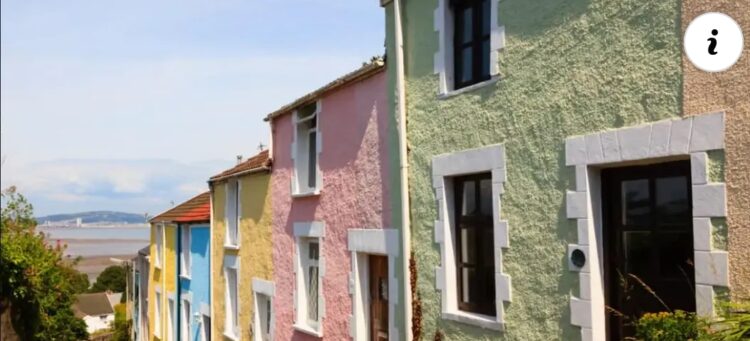UK house prices rebound as market recovers from June dip
House prices in the United Kingdom (UK) rose in July, recovering from a sharp fall in June after the expiry of temporary stamp duty relief.
According to data from Nationwide, the average price of a home increased by 0.6% last month to £272,664. This follows what was the largest month-on-month drop in over two years in June.
The annual rate of house price growth also picked up slightly, rising to 2.4% from 2.1% the previous month. Purchase activity remained steady, with 64,200 mortgages approved in June.
Nationwide’s chief economist, Robert Gardner, noted that home affordability has improved, though challenges remain.
“The price of a typical UK home is about 5.75 times average income, the lowest this ratio has been for over a decade,” he said. “This is helping to ease deposit constraints for potential buyers, as has an improvement in the availability of higher loan-to-value mortgages.”
While affordability metrics have improved, borrowing costs remain significantly higher than in recent years. Nationwide highlighted that interest rates on a typical five-year fixed mortgage for someone with a 25% deposit are now more than three times what they were in autumn 2021.
Jeremy Leaf, a London-based estate agent, shared a more hopeful outlook for the coming months.
“On the ground, transactions are holding together relatively well,” he said. “As a result, looking forward we expect to see a modest improvement all round, particularly if interest rates are reduced in the next month or so as widely expected, despite lingering concerns about the economy.”
The end of the stamp duty cut in England and Northern Ireland earlier this year added extra costs to home purchases. However, attention has now shifted to the Bank of England’s monetary policy committee (MPC), which will meet on 7 August to decide whether to lower the base interest rate from its current 4.25%.
Markets are anticipating a rate cut to 4% next week, with another possible reduction to 3.75% before year-end. But recent economic data could affect the timing of any policy change.
UK inflation rose to 3.6% in June—above the Bank’s target of 2%—casting uncertainty over expectations for a rate cut.
“All eyes will be on the Bank of England next week and what it decides to do with interest rates,” said Karen Noye, a mortgage expert at Quilter. “It was thought that a rate cut was fairly certain, but recent inflation data coming in higher than expected may just temper things slightly and force buyers to wait. Should the Bank of England follow through with a rate cut, however, that will help support the buyers.”
For now, the market appears cautiously optimistic, with modest price growth and stable demand offering a contrast to the turbulence earlier this year.
(The Guardian)



